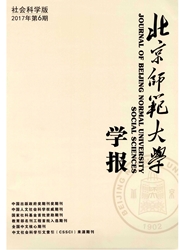

 中文摘要:
中文摘要:
基于我国特定的教育文化背景,整合已有理论和实证研究,提出了小学生父母教育卷入行为结构的理论模型。通过家长访谈、专家评定,对该模型进行了完善,并据此编制了家长报告问卷加以验证。对965位小学生家长所填问卷进行分析后,形成小学生父母教育卷入行为问卷(父母回答版)。问卷共29个项目,包括了五个维度,分别为:家庭监控,指父母对子女学习、生活及交往等的监督、控制行为;学业辅导,指家长按照教师要求或自行在家中对子女的学习进行辅导的行为;亲子沟通,指家长在日常生活中就子女学习、生活、交往以及学校事务进行沟通和交流的行为,以达到共同理解、信任的过程;共同活动,指为开阔视野、促进身心发展,家长与孩子共同进行的一些文体、社会实践活动等;家校沟通,指家长为了获取子女在校表现的信息和了解学校当前进行的工作而进行的家校之间的沟通与交流。经过探索性因素分析和交叉验证分析,问卷的结构与理论模型拟合较好,能够作为考察我国小学生父母教育卷入行为的测量工具。
 英文摘要:
英文摘要:
This paper, based on previous theoretical and imperial studies, aims to construct a theoretical model for the structure of parental involvement in China's primary school children education from the perspective of parental involvement behaviors. The investigation was carried out by parent talks and specialist evaluations to improve the model and hence de- signed parent report questionnaires for the verification. The analysis of the questionnaires answered by 965 primary school children's parents leads to the patterns of the questionnaires of parental involvement behaviors, which give rise to 29 items and include five dimensions: family supervision, student learning tutorial, parents-children interaction, parents-children co- activity, and family-school communication. Exploration factor analysis and cross-test analysis are adopted and the result shows that the structure of the questionnaires and the model correspond very well, and they can be used as the measurement tool for furthering the relevant studies.
 同期刊论文项目
同期刊论文项目
 同项目期刊论文
同项目期刊论文
 期刊信息
期刊信息
